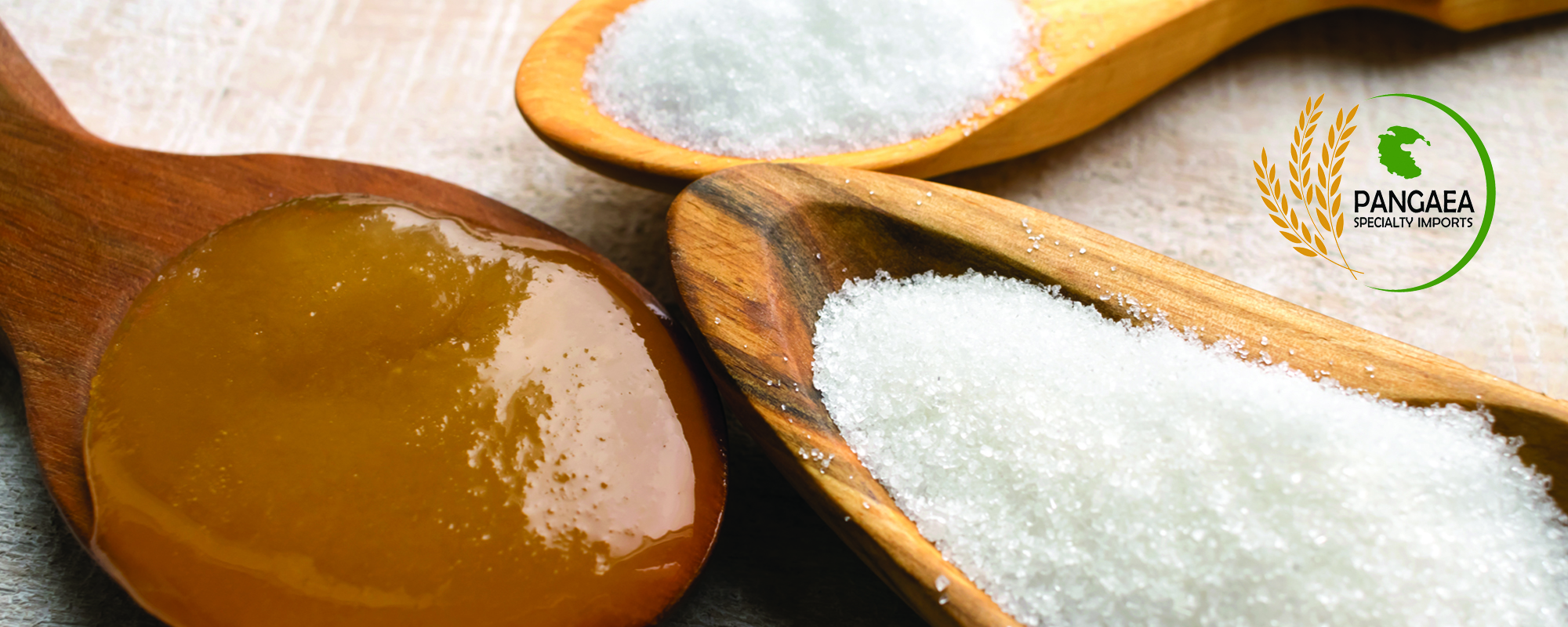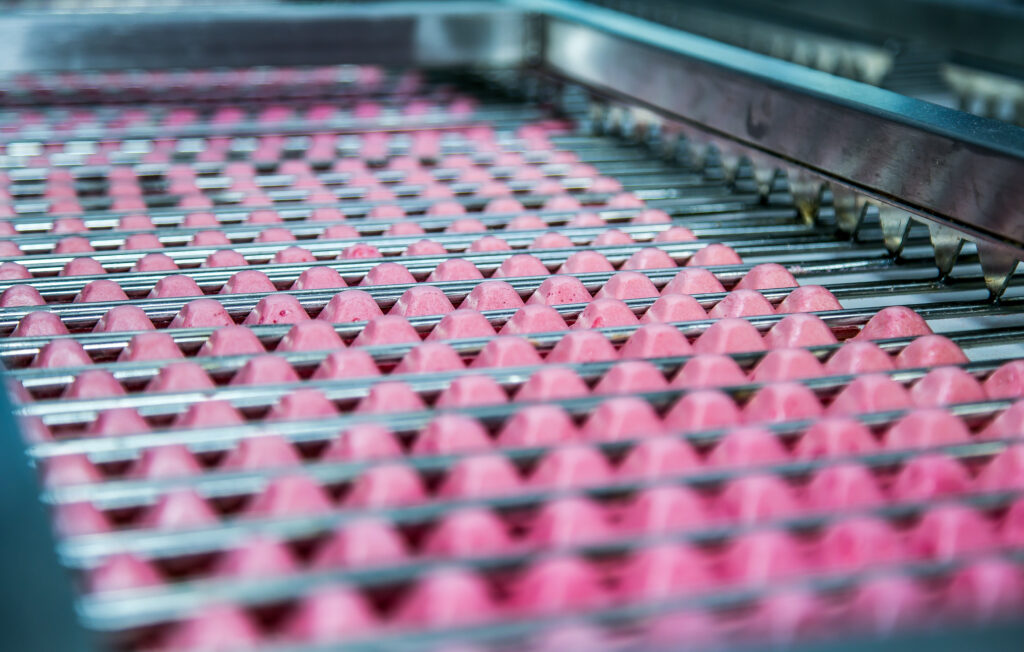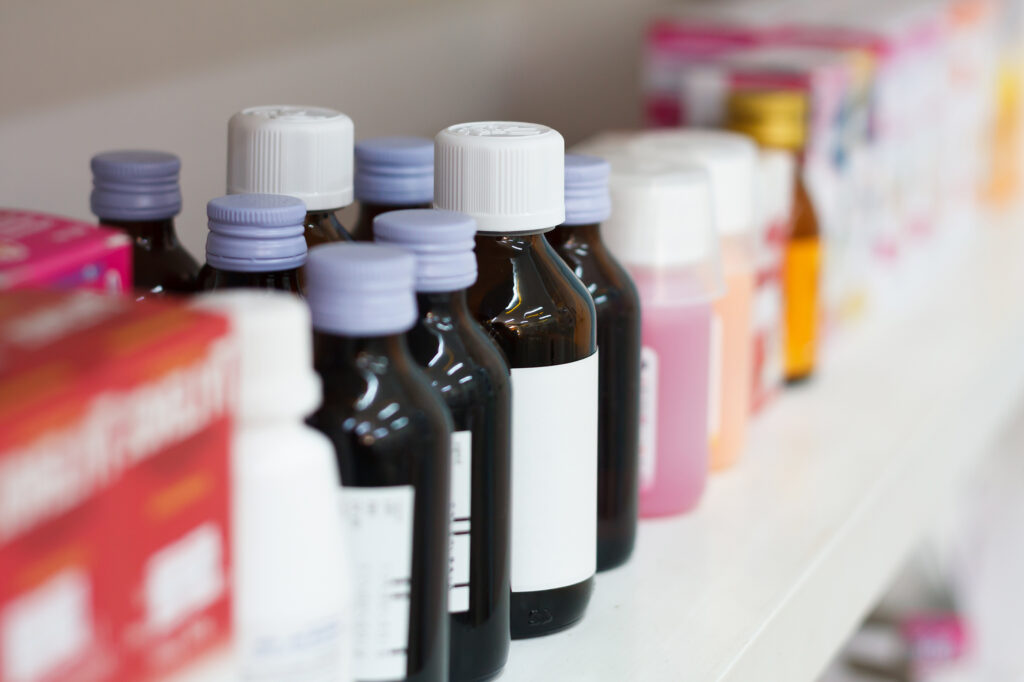
Polyols
- Bakery products
- Confectionary
- Counter medicines
- Diabetic food
- Humectant
- Jams and preserves
- Industrial uses
- Ice cream
- Oral hygiene products
- Surimi

Bakery products:
Sorbitol is not fermented by yeast and does not react with proteins, so it will not react with flour proteins to give the Maillard reaction.
Sorbitol is excellent humectants and is used to extend the shelf life of many baked goods and fillings. Typical use level is about 5% Powdered sorbitol can also be used to replace sucrose in sugar reduced products such as biscuits.
Confectionary:
Whilst sorbitol has in the past been used for many years in different ‘sugar-free’ confectionary products, other polyols such as maltitol and mannitol are probably now more suitable. Sorbitol is however a very efficient plasticizer and humectants and can be used as an alternative to glycerin or invert. When used in a cream paste at about 0.5% addition, it will give the paste a softer texture. A 5-10% addition of sorbitol to fondants and fudge reduces drying out, controls water activity, and can help control crystallization.
Powdered sorbitol can be used in the production of sugar-free chewing gum. Powdered sorbitol can also be used in tableting and chocolates, but a high-intensity sweetener has to be included to give the required sweetness. Because sorbitol is hygroscopic, ideally, the production area should be air-conditioned.
Deposited hard-boiled confectionary can be made with sorbitol replacing all the sucrose and glucose syrup. Because of the low viscosity of cooked sorbitol, it is difficult to work the cooked mass, which makes it unsuitable for making hard-boiled sweets by ‘roping’.
Unlike dextrose, powdered sorbitol is anhydrous, and can therefore be used in the production of chocolate, but the conching temperature must not exceed 42c.
Sorbitol syrup and powdered sorbitol can be used in dragged pan work to produce a smooth coating.
Sorbitol can improve the freshness and keeping qualities of desiccated coconut, candied fruits, and similar types of products by reducing the loss of moisture.
Bakery products:
The recipes of most baked products contain minimal amounts of water, therefore crystalline maltitol can be used to replace or all of the sucrose in cakes and biscuits. Because it is not fermented by yeast, it is not suitable for leavened goods.

Counter-medicines:
The traditional carrier for the active ingredients in a lot of medicines for young children has been a sucrose syrup (Syrup Simplex BP). The disadvantage of using a sucrose syrup is that it is not dental friendly because it is fermented by the bacteria in the mouth producing acids, which lead to tooth decay. By using sorbitol as the medicinal carrier, as it is not fermented by oral bacteria, the possibility of dental decay is substantially reduced.
Oral hygiene products:
Because sorbitol is not fermented by the bacteria in the mouth, it is used in oral hygiene products such as toothpastes where it acts as a carrier for the insoluble ingredients and also as a plasticizer for the toothpaste. It is also used in mouthwashes.
Diabetic Food:
As sorbitol is only partially metabolized by the body, it can be used in foods for diabetics as part of a program to help manage blood sugar levels.
Jams and preserves:
When making diabetic and reduced calorie jams and preserves, sorbitol syrup can be used to replace sucrose and glucose syrups. Since the molecular weight of sorbitol is less than that of sucrose, the osmotic pressure is increased giving improved microbiological stability to the end product.
Maltitol:
Maltitol is a disaccharide polyol composed of dextrose and sorbitol and is usually available in three grades containing varying amounts of maltitol, and either as a syrup or as a crystalline powder. Typical maltitol contents are 50-55%, 72-77% and 80-90%, depending upon the maltose content of the syrup from which the maltitol was made.
Humectant:
Sorbitol has been used as a humectants in many different applications from food to tobacco and adhesives.
Ice cream:
Sorbitol, because of its low molecular weight, can be used as an alternative to glycerin in the production of soft scoop ice creams. Typical addition rate would be about 5%.

